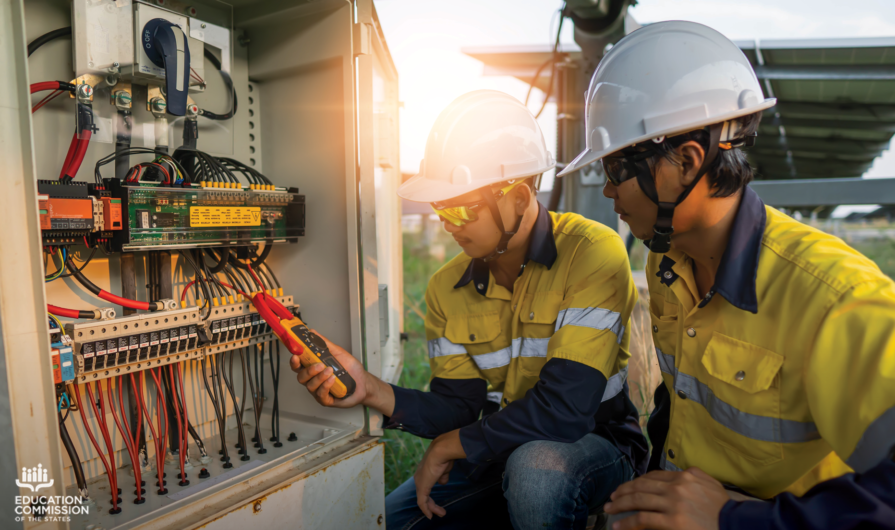Over the past several years, states across the country have made considerable progress in expanding experiential and work-based learning, including roughly $1 billion invested in apprenticeships alone. Because of stay-at-home orders and business closures , there have been considerable disruptions in work-based learning. In many cases, work-based learning has been suspended, and extensions have been given for when individuals are allowed to reenter workplaces. Until businesses reopen, many work-based learning experiences will be put on pause.
While these challenges cannot be wholly eliminated, state policymakers can take the following action to support schools and districts in providing meaningful experiential opportunities during the pandemic that will allow students to engage in work-based learning in the future.
- Open and Expand Access to Virtual Career Exploration Opportunities
A foundational part of a work-based learning continuum includes access to and availability of high-quality exploration activities that support individuals in identifying interests and priorities. In a virtual setting, school systems and businesses can work together to provide students with various virtual engagements, ranging from guest speakers from local businesses to informational interviews with professionals across industries.
State education agencies can compile and provide online resources that link students to activities and engagements with industry professionals. For example, the Wisconsin Department of Public Instruction provides schools, students and parents with a series of online career exploration resources, including links to online job shadowing opportunities and interviews with professionals across career clusters.
- Connect Students to Opportunities
Career counseling can support student participation in relevant experiences by helping them connect to opportunities and tie them to their educational and career planning process. In addition, career counseling can help students progress toward their academic goals as future opportunities to engage in work-based learning activities emerge.
For example, in 2013, Wisconsin enacted policy that requires all students in grades six through 12 to receive academic and career planning services. The department of public instruction provides and maintains technology and computer programs to support districts in providing academic and career planning to students. In addition, the department connected its online resources for planning services with virtual career exploration programs to create greater transparency and flexibility for students and counselors engaging in these initiatives.
- Encourage Program and Credential Requirement Flexibility
Opportunities to earn credentials for work-based learning often require face-to-face hours in a workplace and the completion of an assessment. With restrictions on face-to-face contact and in-person testing still in place, schools and CTE programs have to be flexible in their delivery models. States have to be equally flexible in providing guidance that will allow a student to continue to progress or pause with a clear path to earning the credential in the future. Through flexibility and exemptions, states have kept an eye on maintaining rigorous standards for quality credentials. Ohio and Florida provide innovative paths forward during the COVID-19 pandemic.
-
- The Florida Department of Education took action to allow students to take credential exams at home through remote testing. Five conditions must be met for the exam to be administered online and for the credential to be awarded.
-
- The Ohio State Department of Education amended requirements to allow students who completed the curricular portion of a work-based learning program to graduate. Schools are encouraged to provide opportunities for graduates to complete the hands-on portion of the credential once it is safe to reopen.
Though new challenges continue to emerge, states are finding ways to connect students to experiential learning and future work-based learning. As states continue to grapple with challenges, existing state work can help policymakers explore new ways to support student access to experiential learning. Additional information can be found in our recent publication, “Expanding High-Quality Work-Based Learning.”










